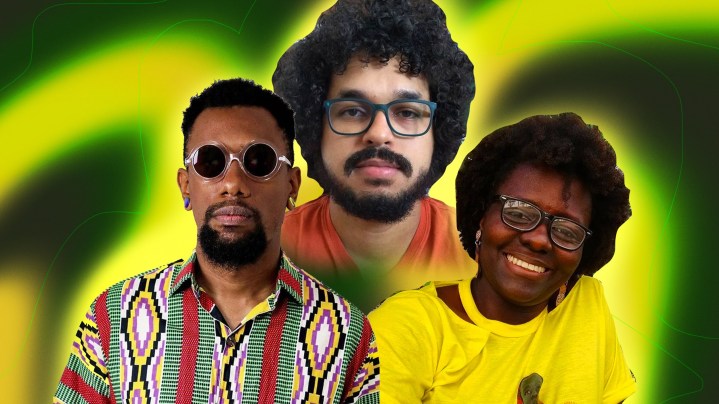Fábio Kabral
What are the main themes and perspectives of your work?
My main concern with my works is to present the humanity of Back people in their virtues, defects, and contradictions, from our own cultural image. My intention is to promote literature in which the philosophies, sciences, and cosmologies of African matrixes are the center of the fictional universe. Above all, my goal is to write good stories for everyone’s appreciation. After all, literature is for everyone, all human beings.
From publishers and the public, is there still resistance to Afrofuturist literature?
It took me about 10 years to publish my first book Rites of Passage, which is Afrofuturist before I even knew the word existed. At the time, there was even a great publisher who told me, “Your work is very good! Unfortunately, it doesn’t fit our profile.” What profile would that be? Nowadays it is apparently easier, and my two following books found more acceptance and space due to the current social cries for more diversity, representation, and plurality. However, prejudice and racism still persist.
Why does Afrofuturism matter?
Anyone who knows me knows I don’t give a shit about labels. By chance, everything I write and will write is and will be Afrofuturism because my writing coincides exactly with the characteristics of the movement. My only interest in Afrofuturism is to encourage more Black people to express themselves and create more speculative fiction, especially those fictions that have African cosmologies at their core.
Now, for the anti-racism militancy of the internet, there is practically no difference between Afrofuturism and other antiracist movements. As we live in a country where the Afrocentric perspectives suffer brutal erasure, any shallow message becomes an antiracist reference. Thus, any spectacular nonsense has been considered Afrofuturism. Militancy itself is not my focus, but to write the best possible literature for the appreciation of all people—a literature that is a worthy legacy, especially for those who are Black.

